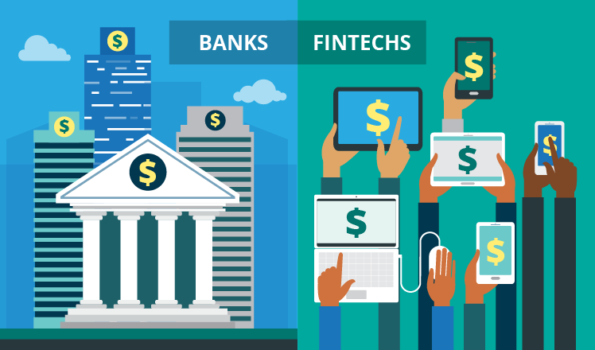Fintech startups present a dual nature, both as a threat and an opportunity, to the world’s largest banks. While some fintech firms pose a challenge by diverting customers away from traditional financial institutions, others provide valuable opportunities by assisting banks in making better decisions, improving efficiency, and serving customers through digital channels.
Certain banks perceive fintech as a threat, while others view it as a chance to collaborate, integrate solutions, and learn from their digital-first approach. Successful partnerships can yield tangible benefits for banks, as explored in this article, focusing on the advantages of aligning with fintech companies and addressing solvable issues through collaboration.
The collaboration between major banks and fintech startups offers several benefits. Innovative products and services tailored to specific markets can give large banks a competitive edge. Fintech startups, often born out of a single innovative solution, cater to market needs previously overlooked by traditional financial institutions, such as peer-to-peer lending programs.
Furthermore, as the world becomes increasingly digitized, banks are embracing partnerships with fintech companies to enhance their digital payment services. For instance, Wallester, a prominent company in this space, provides banks with card-related services that significantly reduce the risk of fraud and enhance the speed of payments. By leveraging Wallester’s solutions, banks can become more efficient and customer-centric, exemplifying the potential benefits of collaboration between fintech and banks.
Integrating new products and services, when in demand, enables large financial institutions to enhance their offerings. Fintech firms provide specialized solutions that cater to a wider range of customers. Services allowing customers to make online purchases and defer payment are particularly appealing and can attract loyal clients to major financial institutions. Additionally, fintech companies can enhance financial transactions and processes, offering services like online notarization, AI-driven banking security, and convenient bill payment options. To meet the growing demand for online capabilities, many banks rely on fintech partners for their B2B and B2C development strategies.
Collaborating with fintech companies enables banks to expedite time-to-market for their solutions, better serve customers, and establish a foundation for long-term growth. Any firm that leverages new technology to digitize financial services or streamline transactions falls under the fintech umbrella. Notably, the global fintech industry was valued at $7 trillion in 2020, underscoring its significance and potential impact on the banking sector.
The Future of Financial Technology
Financial technology (fintech) companies can help banks compete against non-banking entities entering the realm of embedded finance. According to the Economist Impact survey, only 12 percent of bankers perceive increasing competition from fintech, while nearly half reported collaborating with fintech in the past year. Once considered a threat to established banks, fintech is now seen as a mutually beneficial source for both incumbents and upstarts, leading to a surge in collaborations aimed at countering non-financial competitors.
When a bank or credit union chooses to “join them instead of fighting them,” it signifies a strategic decision to embrace fintech. By leveraging fintechs’ technical expertise, incumbents can integrate payment or lending services within non-banking products and reap the associated benefits. Neobanks, like traditional institutions, are utilizing their charters to offer insured deposits and other banking-as-a-service capabilities.
McKinsey identifies Treasury Prime, Synctera, Unit, and Bond as fintech companies that have specifically formed partnerships with banks to facilitate banking-as-a-service and embedded banking relationships. Although some banks remain cautious about collaborating with fintech companies, this mindset must be overcome to maintain competitiveness, especially for banks lacking significant in-house IT skills.
While many banks fear that selling products through partners may undermine customer relationships, McKinsey argues that banks may have little choice if end users increasingly embrace embedded financing. Enabling partners to sell financial products can actually be good news for banks, as it represents a low-margin but high-volume business. Banks often face high operating costs due to outdated technology and manual processes, and partnering with fintech companies can help alleviate these burdens.
The future of finance lies in embracing the potential of fintech collaborations, as they offer opportunities for growth, innovation, and staying ahead in an ever-evolving industry.





